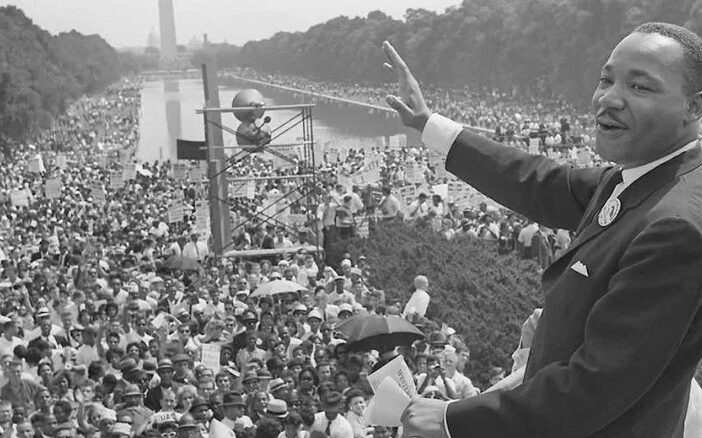
Together with the Big Six (a group of nationally recognized civil leaders that included Whitney Young, John Lewis and Roy Wilkins), Dr. King led the march that called on the government for an end to racial segregation in public schools and protection of civil rights workers from police brutality, among other demands. It also marked one of the most important moments in Dr. King’s career and a pivotal moment in history when he delivered his most famous speech, “I Have a Dream.”
Dr. King met with dignitaries, sat down with President Lyndon Johnson to express his opposition to the Vietnam War, and traveled the country to champion local injustices.
In 1968, on one of his civil rights initiatives, Dr. King went to Memphis in support of the black sanitary public works employees, who had been on strike for approximately one month. He addressed the rally of workers who had come to hear him speak and was shot dead the next day at the Lorraine Motel, where he and his entourage regularly stayed.
Reportedly his last words were to musician Ben Branch, who was scheduled to perform at an event King was going to attend that evening: “Ben, make sure you play ‘Take My Hand, Precious Lord’ in the meeting tonight. Play it real pretty.”
For his work, Dr. King received a Nobel Peace Prize in 1964, as well as numerous honorary degrees and awards, such as the American Civil Liberties Medallion and the John F. Kennedy Award. He endured several attempts on his life, allegations of adultery, and persecution by the FBI. Just days after Dr. King’s assassination, Congress passed the Civil Rights Act of 1968 (commonly known as the Fair Housing Act), prohibiting housing-related discrimination on the basis of race, religion or natural origin—a cause he championed strongly during the final years of his life.
